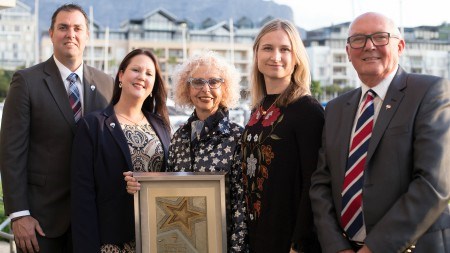I read an interesting article recently about how youth inequality is damaging young people’s prospects in the UK. It mentioned that the opportunities lie primarily within sprawling cities, but the greater cost of living in such locations creates a Catch-22 for rural youth. They struggle to move towards the opportunities in towns largely because they do not have the necessary financial aid network. This highlights the need for government to find ways to engage with young people and ensure that opportunities are amassed in towns or rural environments. In the long run, these opportunities will enable the youth to be part of building stronger and more economically viable communities. Sounds familiar!
Real estate in South Africa has never truly been a sector that attracts young people. In fact, in 2019, it was claimed by some sources that the average age of property practitioners was between 57 and 60 years of age. The prime reason that the youth aren’t attracted to the industry is obviously the lack and uncertainty of a steady monthly income. Not knowing when the next payday will come is tough. Yet, in this decade, with strong calls for transformation and job creation and growing wealth among millennials and Generation Z (those born between 1995 and 2012), there is a serious need for new blood in the market.
The recent introduction of the Property Practitioner’s Act will help, but is it enough? There are questions around whether the estate agency businesses are doing enough to develop and attract the youth, given a perception among them that the sector is only about buying, selling, letting and managing properties. Yet, there are innumerable other positions within the industry that are more administrative.
As is often the case, most property practitioners have had careers in other fields prior to entering the real estate market. So why not create an enabling environment for the youth to join in administrative roles in a successful property practitioner business?
There are innumerable advantages:
- Generally, the youth are still in a knowledge-acquisition mindset after leaving school. Therefore, they are in a position to absorb information quickly.
- They are immediately exposed to an ageing workforce’s experience, knowledge and skills.
- Regardless of how small the input is, they assist in building minor relationships with clients.
What if the industry started motivating a change to attract the youth?
What if there were other ways to earn other than on a 100 percent commission basis? Could successful mentoring property practitioners, for example, share a small percentage of their commissions with youthful property administrators? Could property practitioners consider guaranteeing a full commission to a young partner on a sale regardless of their minor input? Could two or more incoming sales be given to a newly qualified property practitioner under the guidance of a seasoned agent?
Regardless of receiving a regular income, it takes money to remain in real estate, market houses and prospect for clients. Stating the obvious, when a young and newly-qualified property practitioner runs out of money and they have financial responsibilities, there are few opportunities to acquire bridging finance because they have yet to establish themselves as a good financial risk. There is also little to no incentive to lift themselves and their families out of poverty because they have no social or legal, for that matter, protection. And why would they want to remain in an industry that has no shortage of experienced sales agents?
Youth employment within any sales environment is crucial, more so as the estate industry morphs deeper into tech, which it has been slow to adopt. It is the youth that can quickly identify ‘smart’ solutions to challenges. They are the ones building the underlying tech that pushes us out of traditional and stale comfort zones because it’s them that easily communicate with their peers, even strangers, who are similarly tech adoptive and adaptive. Web developers, for example, SEO specialists and social media communicators all have a youthful profile and have value to add.
And what’s being done in the rural areas, where entrepreneurship lies frustrated in the minds of the youth?
Bear in mind that Generation Z are defined as aspirational entrepreneurs, and there are great opportunities for individual property practitioner entrepreneurs to flourish in such areas. Think for one moment how, in rural communities, word spreads fast about sales. Ask anyone that wants to sell a second-hand ‘anything’, and suddenly from nowhere comes people, ready to buy. Is any property practitioner of a heart to support, guide and help develop a youthful property practitioner entrepreneur with no expectation other than to uplift and see a real talent emerge?
Now is the time to facilitate the rapid entry and mentoring of the youth into the property sector:
- They don’t like 9-5 schedules - perfect for the real estate market.
- They live in a digital world - flexibility; they communicate easily with their peers who are contributing more than 50% of activity among first time home buyers.
- And they are hungry to participate in the economy, particularly the ‘smart’ economy.
Generally, the youth already have a smartphone and/or computer… all they need now is a helping hand, financial or otherwise. Of course, some will fail, some will succeed, but that is the nature of philanthropy; you do it because it’s focused on the quality of life for all!




